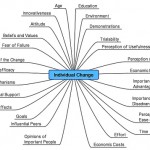A long habit of not thinking a thing wrong, gives it a superficial appearance of being right. – Thomas Paine

This person is handing out replicas of the famous pamphlet. Would you do such a thing, or would you let it slide?
What does that mean?
This is another Twitter friendly quote, a longer version is as follows:
“A long habit of not thinking a thing wrong, gives it a superficial appearance of being right, and raises at first a formidable outcry in defense of custom. But the tumult soon subsides. Time makes more converts than reason.”
This was part of the introduction, and was referring to the abuse of the Crown and the form of governance of his day (back in the 1770’s in the American Colonies).
Whether it is taxes or some other measure imposed on us by the government, there is initially some resistance. But the resistance fades, and the new order becomes comfortable, or at least normal.
But if it is improper, or even wrong, it is still that no matter how much time has passed. Yet often we become used to these things and eventually accept them as right.
Why is not being complacent important?
To me, complacency is what this quote is about. We complain for a while, then we settle in and get used to it. While in some parts of our lives, compromise is necessary, it should only be in how we do things, not in our core beliefs. Compromise in a properly held belief is not a good thing.
This is not, however, a call to arms. There are many ways to push back against something you believe to be wrong. Protesting, writing letters, having additional discussions with better a better documented position are just a few of the ways to not be complacent without being violent.
Powerful people tend to get their way only because they can get some people to be complacent, and move the mass of people in the direction they desire. However there are plenty of other people who have influence as well. Whether it is by their station or their passion, they can help push back complacency.
These people are us. We are they. The people with the power to change things, that’s all of us. We only lose if we are complacent or if we become violent. There are so many other paths available, we just need to take action. Note that this might not work so well in North Korea. 8(
Where can I apply this in my life?
We all have beliefs. Each of our beliefs are as unique as we are. We may agree on some things and disagree on others. Understand that you won’t always get your way, even if you are demonstrably in the right and they are not. The question then becomes are you going to become complacent?
Again, I don’t mean compromise, as that is different. Compromise occurs when everyone involved realizes that no one is going to get exactly what they want, and they start trimming their ‘demands’ around the edges. Eventually, something that is beneficial to all emerges. While it may not be good, it’s not wrong, right? 8)
Where in your life do you tend to be complacent? Where do you settle? Where do you give in and then just let it be? Please note that these are different from delaying to try again later, like at work. Sometimes you have to let the evidence unfold some before you can try to argue your case again, right?
If you know where you tend to give in and become complacent, you can better fight that urge in the future. Unless, that is, you enjoy being known as a door-mat, a push-over, or whatever other name might be used for such a person in your part of the world.
For me, I don’t like to hurt people, so if they do the ‘puppy eyes’ and the ‘blinking back the tears’ act, I tend to cave (I must be too empathetic). Even though I know it isn’t right, I still will often do it. I try to steel myself, but often fail. I try to get back to them later and straighten things out, but that doesn’t always work.
What can you do to better prepare yourself to handle those difficult or awkward situations? How can you go back later and try to rectify them? How can you bring the issue back again, so that you might revisit it when you are in a better state of mind to deal with it?
What can you do to better set up your viewpoint while you wait? What resources can you find or use to help your case? When will you take up the task of righting the wrong? Who can you find to help you in this task? Or will you do it alone? What other questions should you ask yourself?
This quote is rather open, both in the kinds of situations to which it can be applied, and what the proper response might be to that situation. It also depends on your attitudes, your beliefs, and what your weaknesses are.
You will need to dig deep to really get a lot out of this, but even a basic awareness of what is going on will likely be rather helpful. What are you going to do?
From: Twitter, @thequote
confirmed at : http://en.wikiquote.org/wiki/Thomas_Paine about 2/3 down in the section on the pamphlet ‘Common Sense‘
Photo by Karen
Happy ‘Old Style’ birthday to Thomas Paine, born 29 January 1736 O.S. (Julian) calendar. This is also known as 9 February 1737 by the N.S. (Gregorian) calendar.
For the full text of the pamphlet, see http://www.ushistory.org/paine/commonsense/






